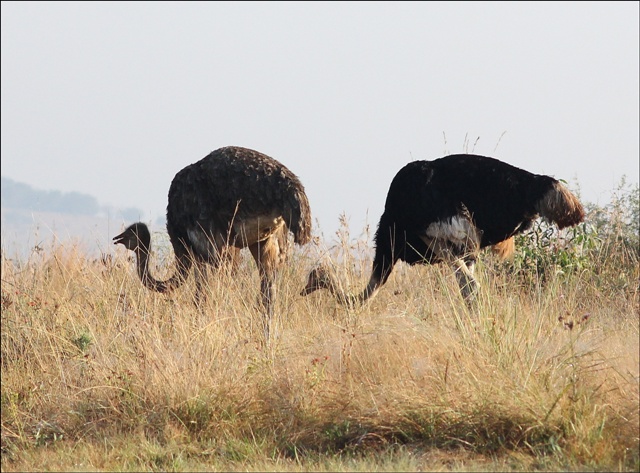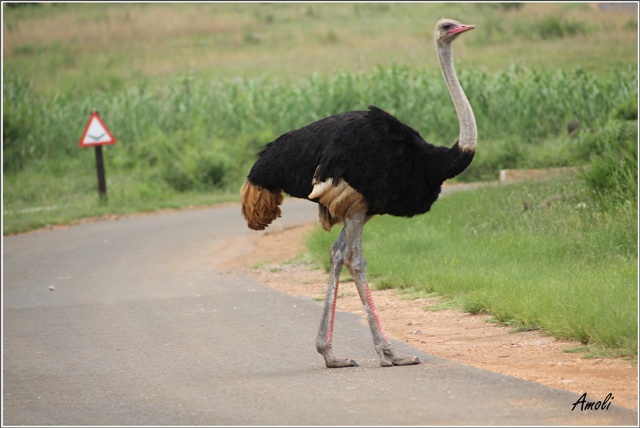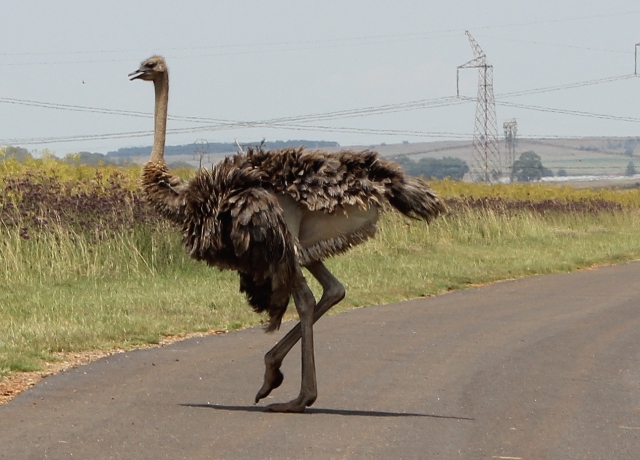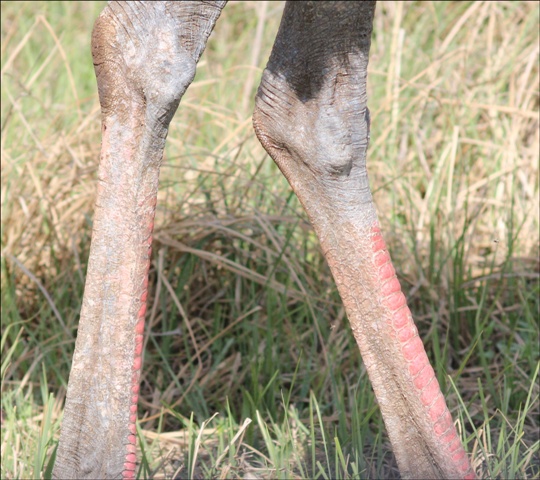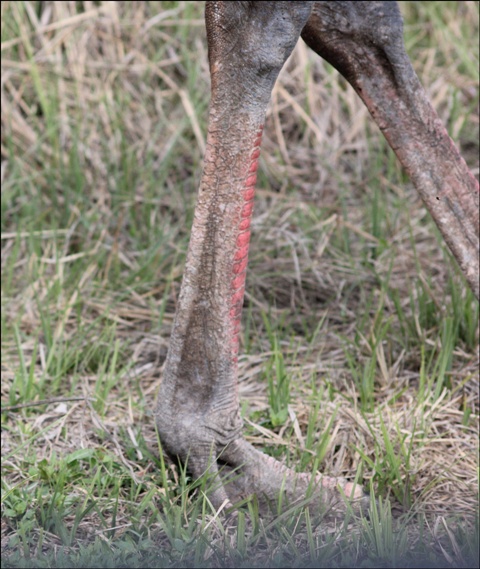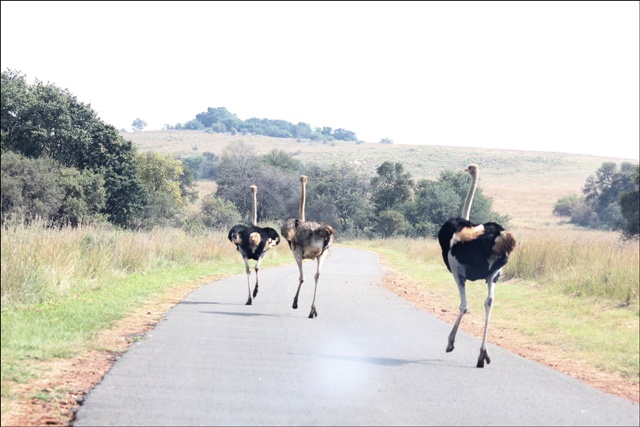The head and neck of both male and female ostriches is nearly bare, with a thin layer of down.
The skin of the female's neck and thighs is pinkish gray, while the male's is blue-gray, gray or pink dependent on subspecies.
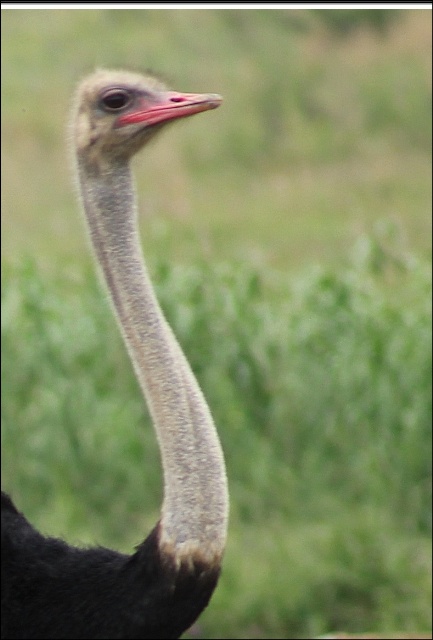
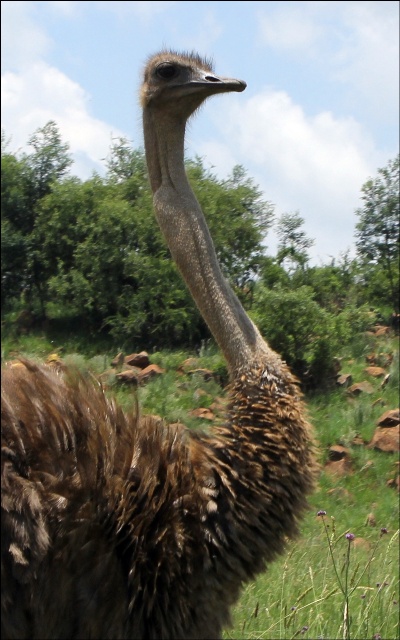
The long neck and legs keep their head up to 2.8 m (9 ft) above the ground, and their eyes are said to be the largest of any land vertebrate: 50 mm (2.0 in) in diameter, they can therefore perceive predators at a great distance.
The eyes are shaded from sunlight from above. However, the head and bill are relatively small for the birds' huge size, with the bill measuring 12 to 14.3 cm (4.7 to 5.6 in).
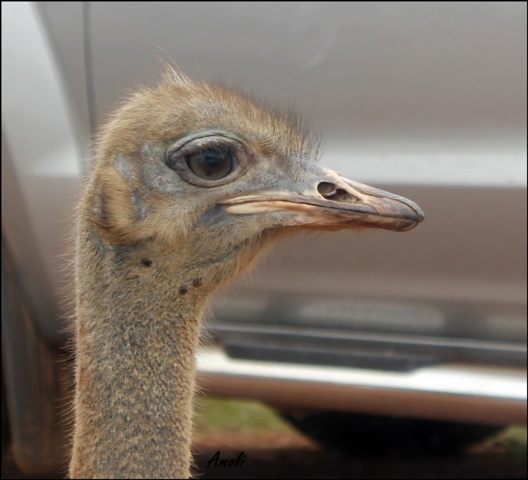
Their skin varies in colour depending on the subspecies, with some having light or dark gray skin and others having pinkish or even reddish skin.
The strong legs of the ostrich are unfeathered and show bare skin, with the tarsus (the lowest upright part of the leg) being covered in scales: red in the male, black in the female.
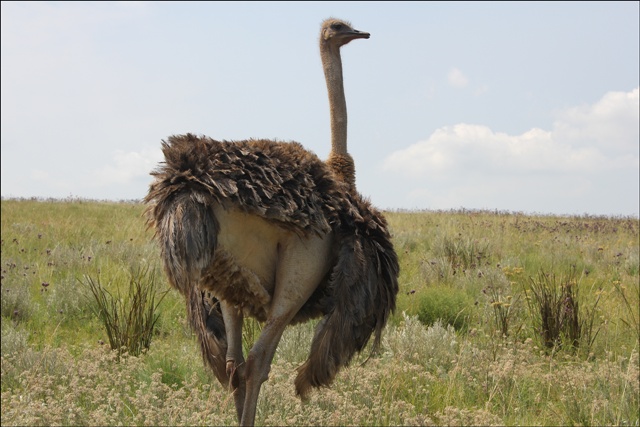
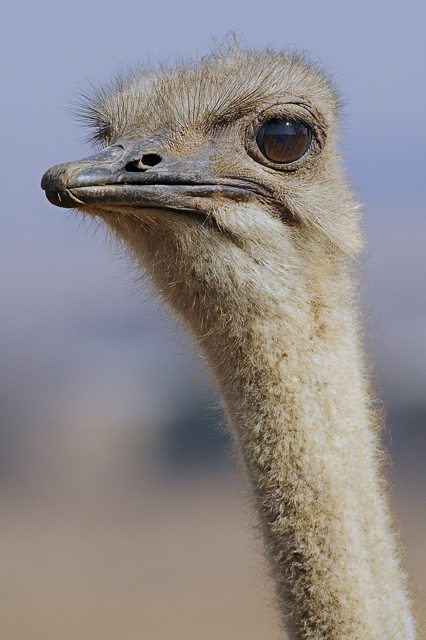

 3.5.2003
3.5.2003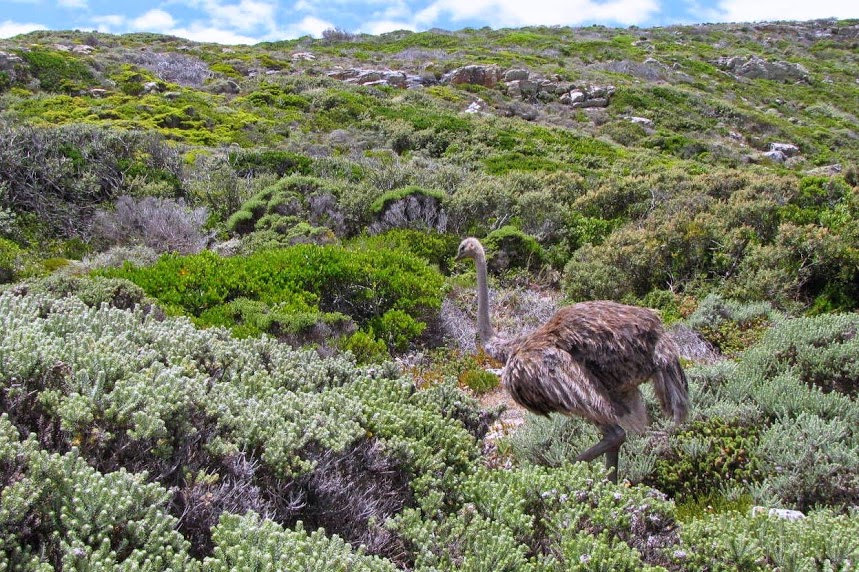 Cape Point 2008
Cape Point 2008
